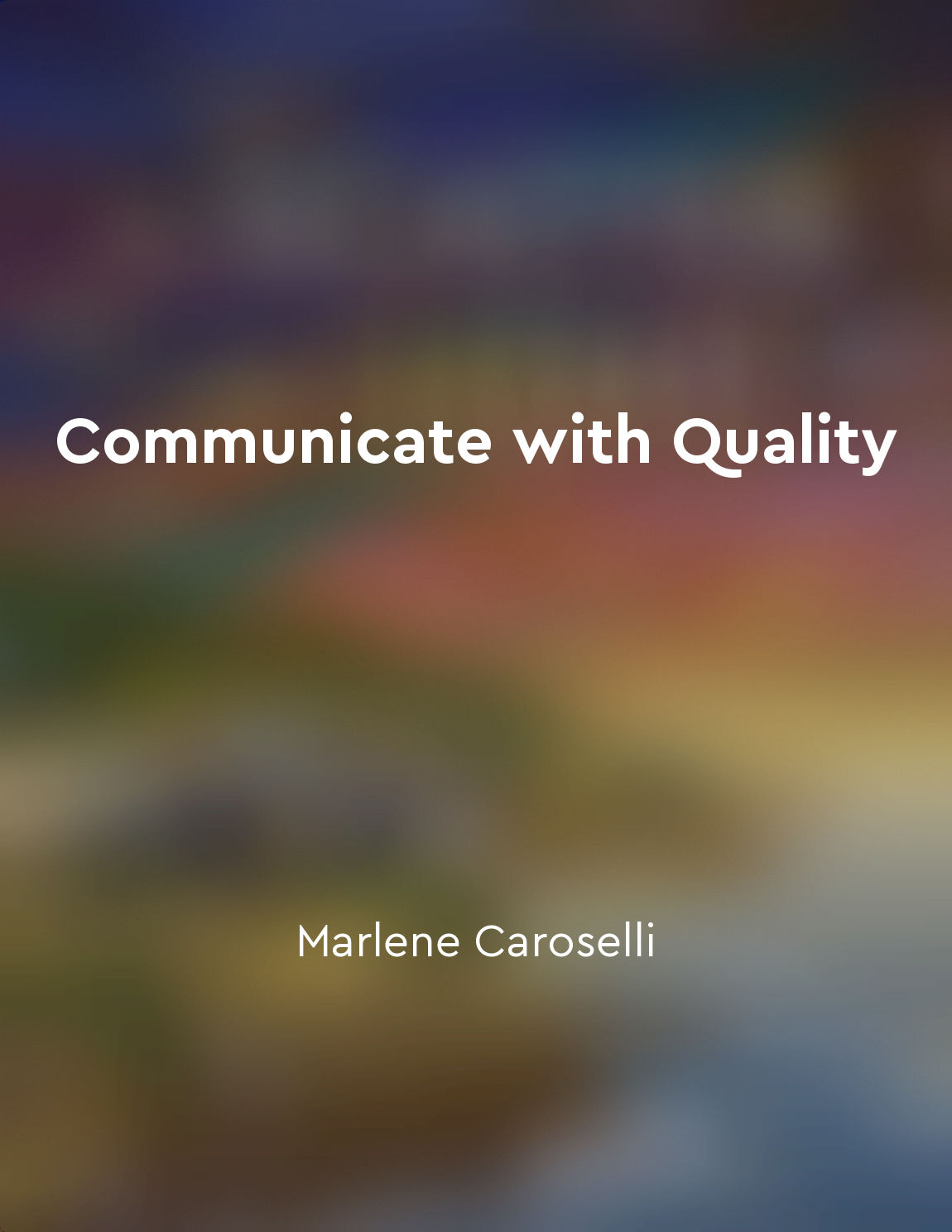Show empathy in your conversations from "summary" of 101 Ways to Improve Your Communication Skills Instantly by Jo Condrill,Bennie Bough
Empathy is the ability to understand and share the feelings of another person. When you show empathy in your conversations, you are demonstrating that you are truly listening and that you care about the other person's perspective and emotions. This can help to build trust, strengthen relationships, and foster better communication. One way to show empathy in your conversations is to practice active listening. This means giving the other person your full attention, making eye contact, nodding, and providing verbal cues like "I see" or "I understand." By doing this, you are showing that you are engaged and interested in what the other person is saying. Another important aspect of showing empathy is to validate the other person's feelings. This means acknowledging and accepting their emotions, even if you may not agree with them. You can do this by saying things like "I can see why you feel that way" or "It sounds like you're really upset about this." It is also helpful to ask open-ended questions to encourage the other person to share more about their feelings and experiences. This can help them feel heard and understood, and can deepen the connection between you. Additionally, it is important to be mindful of your body language and tone of voice when showing empathy. Avoid crossing your arms, rolling your eyes, or using a sarcastic tone, as this can signal to the other person that you are not genuinely empathetic.- Showing empathy in your conversations is about demonstrating that you care about the other person's feelings and experiences. By practicing active listening, validating their emotions, asking open-ended questions, and being mindful of your body language and tone, you can create a more meaningful and effective communication exchange.
Similar Posts
Exceptional individuals possess strong leadership qualities
In the world of exceptional individuals, one common thread that binds them together is their innate ability to lead. These exce...
Treine sua comunicação assertiva diariamente
To develop assertive communication, it is essential to practice it daily. This daily training will help you become more comfort...

Strive for authenticity in your communication
Striving for authenticity in your communication means being genuine and sincere in your interactions with others. It is about c...

Honesty and transparency build trust in communication
When it comes to effective communication, honesty and transparency play a crucial role in building trust between individuals. T...

Practice selfcare and self-compassion
To live a fulfilling life, it is essential to prioritize taking care of ourselves and showing compassion towards ourselves. Thi...

Mutual respect is the foundation of healthy communication
The essence of healthy communication lies in the fundamental principle of mutual respect. When individuals engage in conversati...
Be mindful of your nonverbal cues
Nonverbal cues are a crucial component of effective communication. They can convey a wealth of information about our thoughts, ...
Be humble and willing to learn from others
Being humble and open to learning from others is a key principle in effective communication and building successful relationshi...
Being aware of one's own biases is crucial for effective listening
It is essential to recognize that each of us carries biases within us. These biases can influence how we listen to others. If w...

Embrace diversity and inclusion for a thriving community
The key to a thriving community lies in embracing diversity and fostering inclusion. When we open our hearts and minds to diffe...

